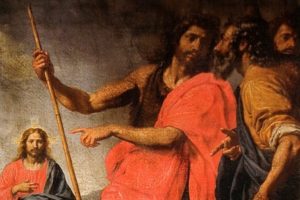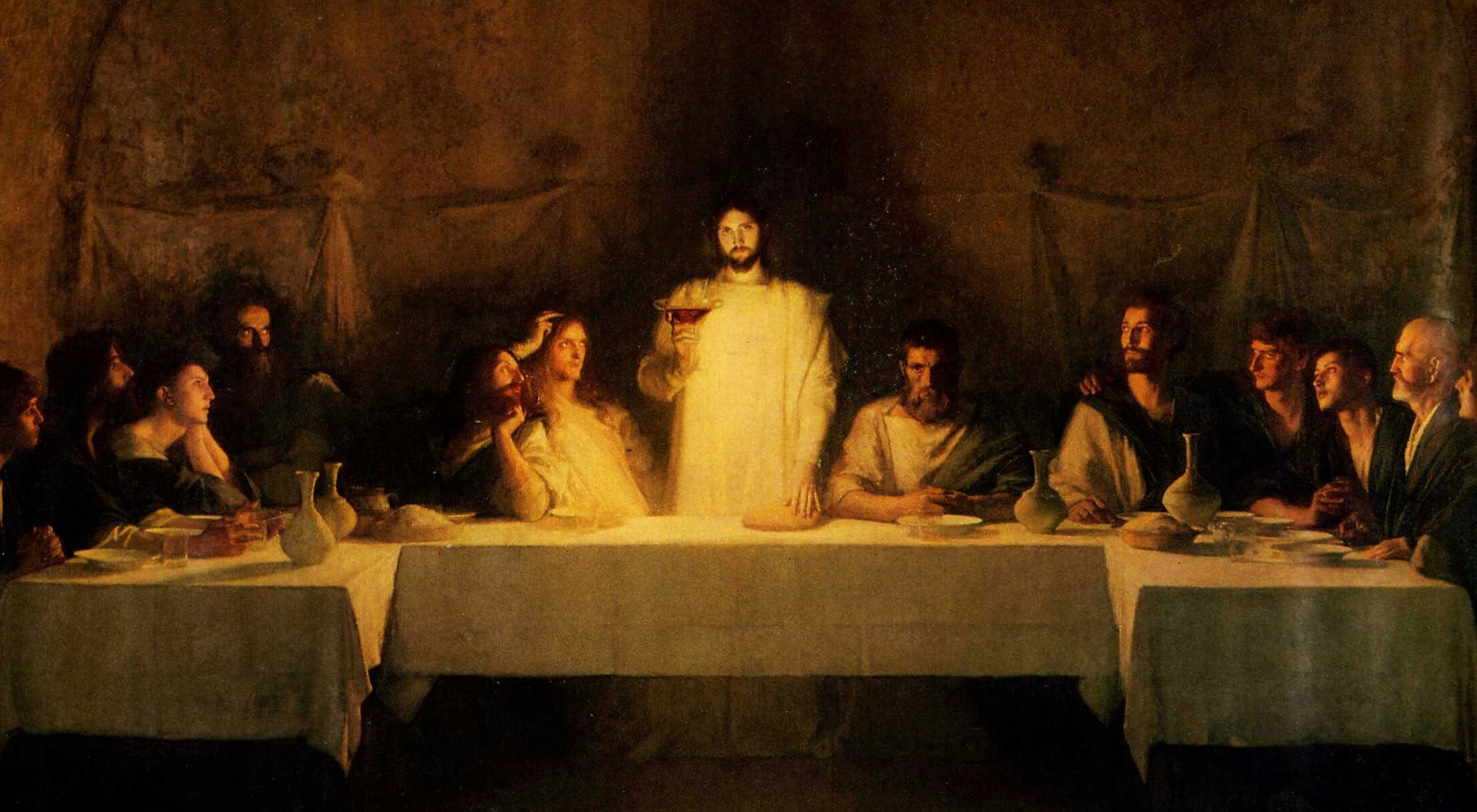The Bible’s Answer
Yes, Holy Communion (also called the Lord’s Supper or the Eucharist) is the true, physical body and blood of the Lord Jesus Christ (Mark 14:22–25; Luke 22:17–20). When a pastor or priest consecrates the bread and wine of Holy Communion with, and by the power of, Christ’s words, they become the actual body and blood of Jesus, in which eternal life and salvation are found (John 6:53–56). Paradoxically, however, the natural elements still remain the same. In other words, Holy Communion is both bread and wine and the body and blood of Christ at the same time.
Jesus Christ’s True Body and Blood
The Lord Jesus Christ instituted Holy Communion for all Christians on the night when he was betrayed by Judas Iscariot. This event is called “the Last Supper,” because it was the last meal Jesus shared with his disciples before he was unjustly put on trial and crucified (Luke 22:15). The Apostle Matthew records this event as follows:
Now as they were eating, Jesus took bread, and after blessing it broke it and gave it to the disciples, and said, “Take, eat; this is my body.” And he took a cup, and when he had given thanks he gave it to them, saying, “Drink of it, all of you, for this is my blood of the covenant, which is poured out for many for the forgiveness of sins. I tell you I will not drink again of this fruit of the vine until that day when I drink it new with you in my Father’s kingdom. (Matthew 26:26–29, ESVUK)
Because there is no evidence to suggest that Jesus was using symbolic language here, his words “this is my body … this is my blood” prove that Holy Communion is the true body and blood of Christ, which Christians receive “for the forgiveness of sins,” rather than just a symbol of his body and blood, which only reminds us of the forgiveness of sins. Moreover, the fact that Jesus links Holy Communion to his “covenant” with Christians (Matthew 26:28; Mark 14:24; Luke 22:20; 1 Corinthians 11:25), which he established in his death on the cross for our salvation (Hebrews 9:14–15; 12:24), is further proof that Jesus is using literal language here rather than symbolic.
Jesus Christ’s Real, Bodily Presence
In addition, because the consecrated bread and wine are Jesus’ true body and blood, this means that Jesus is physically present with us bodily in Holy Communion, not just spiritually. The Apostle Paul teaches this:
The cup of blessing that we bless, is it not a participation in the blood of Christ? The bread that we break, is it not a participation in the body of Christ? (1 Corinthians 10:16)
Whoever, therefore, eats the bread or drinks the cup of the Lord in an unworthy manner will be guilty concerning the body and blood of the Lord. Let a person examine himself, then, and so eat of the bread and drink of the cup. For anyone who eats and drinks without discerning the body eats and drinks judgement on himself. That is why many of you are weak and ill, and some have died. But if we judged ourselves truly, we would not be judged. (1 Corinthians 11:27–31)
The fact that we participate in Christ’s body and blood when we eat and drink the bread and wine of Holy Communion is proof that Christ is bodily present with us in the sacrament, since his body and blood are physical, not spiritual (Luke 24:39; 1 Timothy 2:5). Holy Communion could not possibly just symbolise Christ’s body and blood because to receive Holy Communion in an unworthy manner is to sin against the Lord’s own body and blood. Therefore, in Holy Communion, we eat and drink the actual, life-giving body and blood of Jesus to receive the forgiveness of sins, when done in faith, or to receive judgement, when not done in faith.
Simultaneously Bread and Wine and Jesus’ True Body and Blood
It is incorrect to say that, because Holy Communion is the body and blood of Christ, the sacrament stops being bread and wine. Notice how, in the following Bible passage, the Apostle Paul uses the terms “body” and “blood” interchangeably with “bread” and “cup”:
For I received from the Lord what I also delivered to you, that the Lord Jesus on the night when he was betrayed took bread, and when he had given thanks, he broke it, and said, “This is my body which is for you. Do this in remembrance of me.” In the same way also he took the cup, after supper, saying, “This cup is the new covenant in my blood. Do this, as often as you drink it, in remembrance of me.” For as often as you eat this bread and drink the cup, you proclaim the Lord’s death until he comes. (1 Corinthians 11:23–26)
As we can see, Paul said “as often as you eat this bread and drink the cup,” indicating that the bread and wine does not cease being bread and wine after they are consecrated. Rather, at the moment of consecration, they become the body and blood of Christ in addition to bread and wine.
What This Means for Christians
Because Holy Communion is the true body and blood of Jesus, baptised Christians actually receive forgiveness of sins—rather than just remind themselves of Christ’s sacrifice for their forgiveness—each time they partake in Holy Communion. This happens when we believe in Christ’s words “poured out for many for the forgiveness of sins” and believe in Jesus as our only Saviour (Acts 4:12). It is a means of God’s grace.
It also means that, when we eat and drink the sacrament, we receive Jesus Christ himself into our hearts physically, who grants us the forgiveness of sins. Because of this, we receive the forgiveness of sins objectively, which gives us the assurance of salvation. However, if we receive Holy Communion in a godless manner (for example, by rejecting our need for God’s forgiveness, or by rejecting Jesus as our Saviour), then we can only expect to receive judgement in the sacrament (1 John 1:8, 10).
See Also







